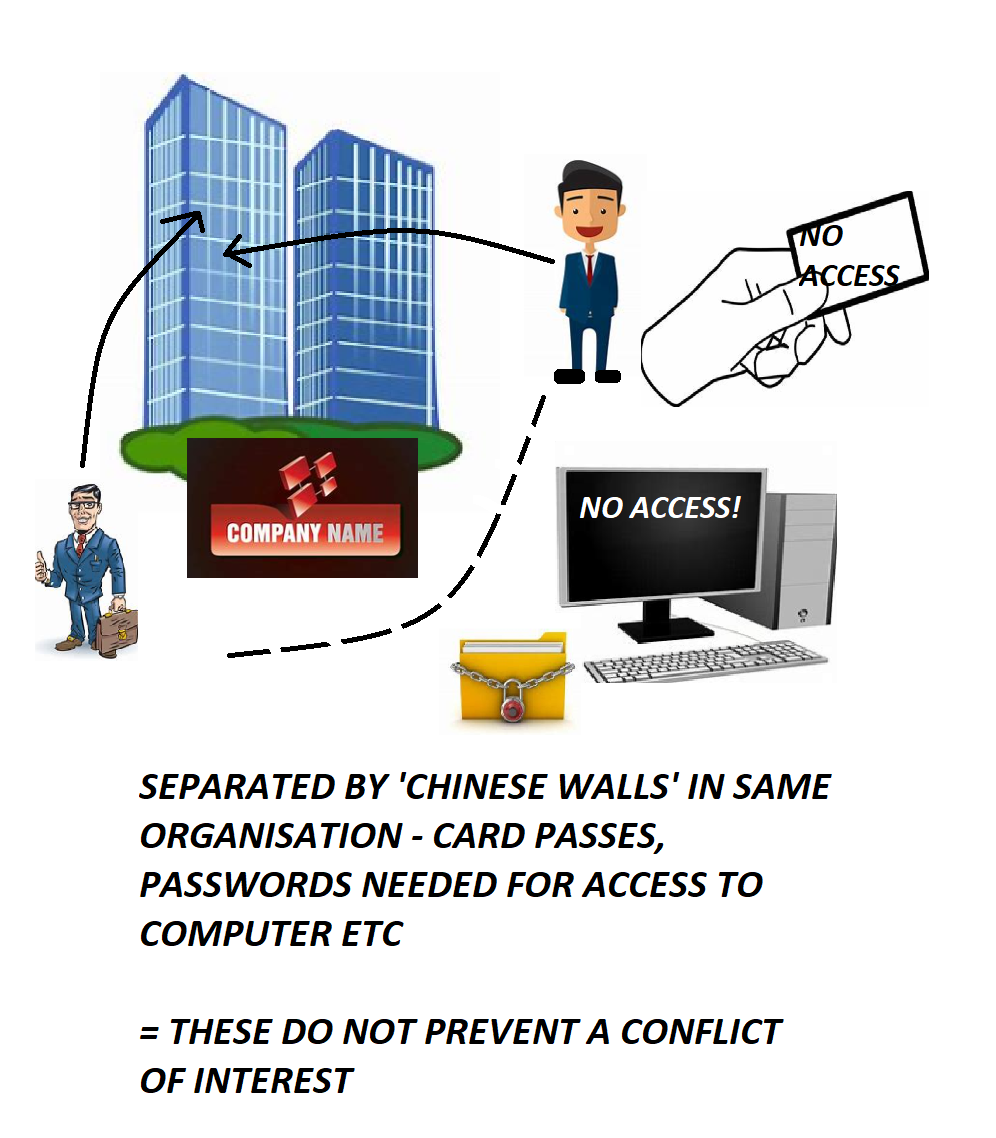Bolkiah v KPMG, 1999 2 AC 222
Citation:Bolkiah v KPMG, 1999 2 AC 222
Rule of thumb:Are ‘Chinese walls’ in an organisation (where certain private details of individuals cannot be obtained by everyone in the organisation and staff are banned from revealing them) enough to prevent a conflict of interest? No, these do not prevent a conflict of interest as even with ‘Chinese walls’ everyone is still expected to promote the interests of a client.
Background facts:
The basic facts were that a complaint over finances was made by Party A about Party B. An investigation was then carried out over Party B by an organisation, and it turned out Party B had been a client of another partner this organisation, so Party A argued that this was not a fair & proper investigation being carried out over Party B. The organisation claimed that they were a big organisation who had ‘Chinese Walls’ which meant that one partner did not know the business of another partner – they were not allowed to discuss client business with other partners and there was no facility for a partner to look up the files of another party up on the system or via the paper file - so they argued that they could still do this investigation properly.
Judgment:
The Court affirmed that this was not a proper complaints process being caried out, and there is a very heavy burden to show that the ‘Chinese Walls’ were robust, with it being presumed that Chinese walls are not sufficiently robust to ensure complete independence between the partners in a firm. It is assumed that partners do not know the exact details’ of the business of other partners, but they do know who their clients are as part of the wide strategy of the firm which they would generally seek to promote or at least not damage these client, and so there was therefore a conflict of interest there. This was therefore deemed to be an improper complaints process due to a conflict of interest.

Ratio-decidendi:
''
Warning: This is not professional legal advice. This is not professional legal education advice. Please obtain professional guidance before embarking on any legal course of action. This is just an interpretation of a Judgment by persons of legal insight & varying levels of legal specialism, experience & expertise. Please read the Judgment yourself and form your own interpretation of it with professional assistance.

